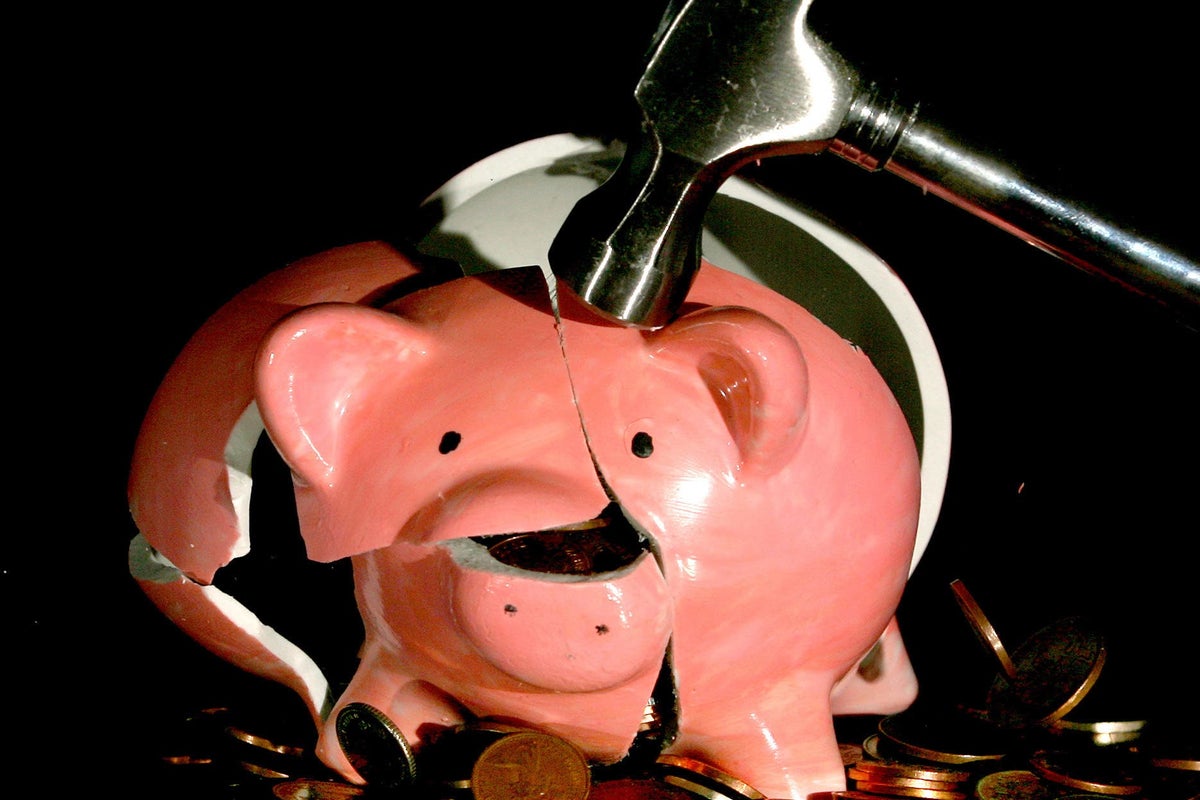
Families are facing a “groundhog year” as further squeezes on living standards take place in 2023, a think-tank has warned.
While the year ahead may offer economic policymakers some relief, with signs inflation will ease and interest rates peak lower than feared, family finances face a repeat of 2022’s squeeze as the cost-of-living crisis deepens, according to the Resolution Foundation’s new year outlook.
The Foundation described 2022 as horrendous, with real household disposable income falling by 3.3%, or £800 per household, over the course of the year, marking the biggest annual fall in a century.
Inflation may already have peaked at 11.1% in October and wholesale energy prices have fallen significantly, the Foundation said.
It said that firms have also been reporting that recruitment difficulties are easing.
From a cost-of-living perspective, 2022 was a truly horrendous year— Torsten Bell, Resolution Foundation
But it added that in 2023, households are set for a further squeeze in their living standards and incomes are forecast to fall by 3.8%.
This comes despite benefits and the National Living Wage being set for welcome rises of 10.1% and 9.7% respectively in April, it said.
Pay is set to continue falling in real terms until the second half of 2023, and is unlikely to even return to its current level until the second half of 2024, according to the think-tank, which is focused on improving living standards for those on low to middle incomes.
Household spending on energy bills is expected to reach a record high as retail prices rise further and Government support is scaled back. The typical household energy bill is set to rise to £2,450 in 2023, up from £1,550 in 2022, and £1,170 in 2019, the Foundation said.
While energy bills support is scaled back, the report noted that tax rises will be scaled up, with a typical middle-income household set to see their personal tax bills rise by around £1,000 from next April.
Rapidly rising interest rates in 2022 will also feed through into higher mortgage costs in 2023, as around two million households move onto new fixed-rate deals.
Findings from a new Resolution Foundation-commissioned YouGov survey of 10,470 adults show that people are over four times as likely to think that their financial situation has become worse rather than better over the past year.
One in eight (12%) said their financial situation was better and more than half (57%) said it had deteriorated.
Torsten Bell, chief executive of the Resolution Foundation, said: “From a cost-of-living perspective, 2022 was a truly horrendous year – far worse than any year in the pandemic or financial crisis.
“2023 should see the back of double-digit inflation, but it looks set to be a groundhog year for many families whose incomes look set to fall by just as much as they did in 2022.
“Many families will be helped by benefits and the National Living Wage rising, both by around 10% next April.
“But this will be swamped by shrinking pay packets, a record £900 rise in energy bills, tax bills for the typical household rising by £1,000, and millions seeing four-digit increases in their mortgage bills.
“For families’ living standards, things will get far worse in 2023 before they start to get better.”
A Treasury spokesperson said: “We are committed to supporting families with children, which is why we increased both child benefit and child tax credits in line with inflation this year and made changes to Universal Credit so that working families can keep more of what they earn.
“We also have a plan that will help to more than halve inflation next year, bearing down on the financial pressures that households face, and have already lifted millions of people out of paying tax altogether by raising the tax-free allowances for both income tax and National insurance by more than inflation since 2010.
“This is on top of substantial support with the cost of living, with everyone benefiting from energy bills being held down this winter and more than eight million vulnerable households having already received £1,200 in cash payments straight to their bank accounts – with a further £900 for those on means-tested benefits next year.”







